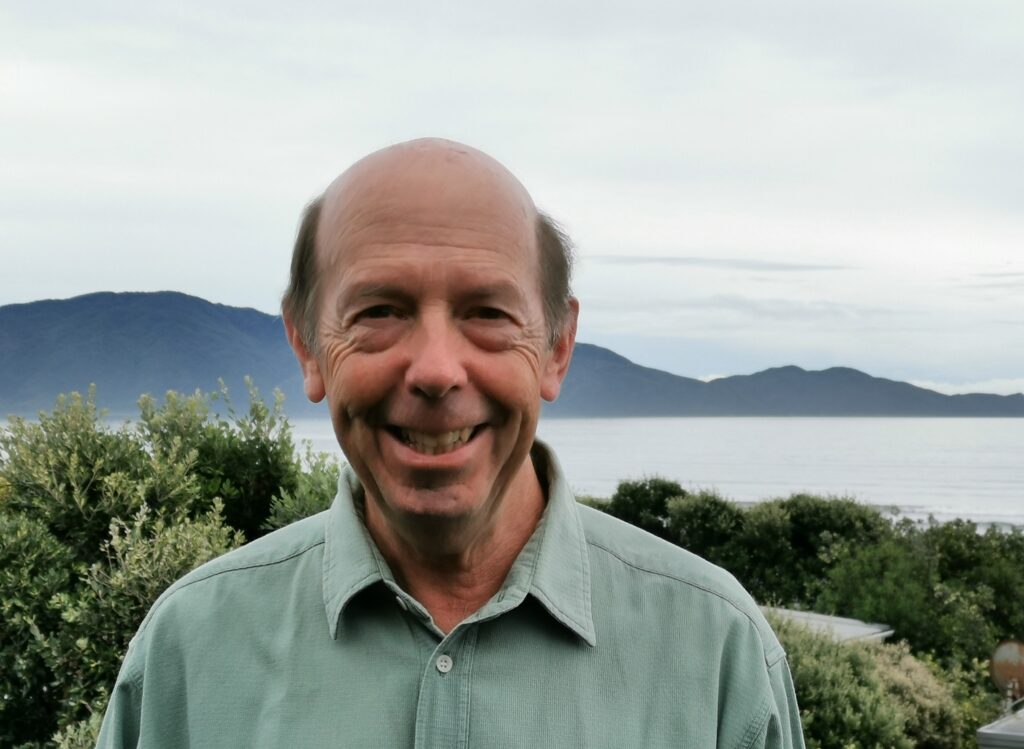
Chris Mitchell was the first candidate to declare himself a starter for the Kāpiti mayoral race back in April and has since been joined by a growing list after current mayor K. Gurunathan announced he will not be seeking re-election.
Mr Mitchell says he is a long-time Waikanae resident with a strong background in how councils should operate.
“I co-authored the New Zealand textbook: Local Government Law in Practice. And I am an adjunct Law Faculty member at Victoria University, where I have taught resource management law.
“As a lawyer, I have specialised in resource management, planning, and local government law for about 40 years. Over this time, I have done work for many local authorities, and for many private and corporate clients who have to deal with local authorities.”
Mr Mitchell says a lot of this work involves advice on governance, high impact decision making including funding and community consultation requirements.
“In recent years, much of my work in the resource management space has been as an independent chair of various Council commissioner panels dealing with resource consents and proposed district plan changes.
“In addition to advising a range of Councils, my experience in governance has included being the chair of partners in one of New Zealand’s largest law firms, leading into its merger with Australian firms, and running and coordinating hearing panels for large projects involving many submitters and expert witnesses.”
Mr Mitchell says over the last decade or more, there has been a trend across the public sector for organisations to become more remote from the people and communities they serve.
“The Kāpiti Coast District Council has become an extreme example of this trend. I have lost count of the number of people, businesses and residents’ groups who need help to get answers from Council to basic and routine, but important, questions which affect them commercially or personally. Phone calls to Council staff are not answered, emails may or may not be answered, contact details of responsible individuals are treated as highly sensitive and secret. Information, let alone reliable information, is hard to get, particularly in real time. Often these are small things which can and should be easily fixed. But the problems have crept into the big issues as well.
“Worse, the elected councillors are too often either unable or unwilling to discuss these problems. Here are examples of issues which have unnecessarily cost the district millions of dollars because the Mayor and councillors either will not listen or are stuck in some kind of ideology:
“We have a Council long term plan which locks in annual rates increases of around 10%. Many of our households are now paying $100 a week in rates and they are, in most cases, actually seeing their real incomes fall, and getting less for their rates year by year. This is not only unsustainable but, sadly, symptomatic of councillors who either have no idea or no interest in these consequences.
“We have a Council which will not talk to people (except at election time or through glossy brochures), but actively wants to reduce democratic participation. They voted, for example, to abolish all community boards and to amalgamate the two largest wards, Paraparaumu and Waikanae (the most underrepresented ward in New Zealand), leaving the latter with the potential for no representation at all.
“We have a Council which makes foolish decisions. The Gateway project, overwhelmingly opposed by local residents and businesses, and with an unknown price tag (now likely over $8million), is something that isn’t even a Council responsibility. This is simply a vanity project, which some of its supporters are abandoning now that the electoral consequences are becoming clear.
“These examples are just a few illustrations of the problems with the current Council mindset. It is notable that the current councillors who are now standing for Mayor supported all of these examples.”
Mr Mitchell says he has seen many enthusiastic and talented people elected to Council and become completely thwarted by the inertia of process, and the agendas set, not by the community, but by management.
“Too many councillors simply give up on their ideas. Others are just captured by the process, and the insistence that following the agenda is the only option. I know that this is not how good councils operate. I have the experience and the commitment to change the mindset and the outcomes.
“Council urgently needs a reset to acknowledge that it exists to serve the District’s communities. It needs to face out rather than in, and to import ideas and skills from the community – not resist them.
“Management needs to be redirected accordingly. The role of elected members is to understand and speak up for their communities, and to direct the organisation. I have a lot of experience in local government. As a lawyer I see the best and worst in terms of practice, leadership and engagement. I know that our Council does not have to be this way.
“The Kāpiti Coast is one of the best places to live. It deserves a much better Council. With community support we will achieve this.
For more detail on policies and ideas please visit my website www.chrisforkapiti.com. I welcome comments, questions and discussions by email [email protected] or Facebook.
